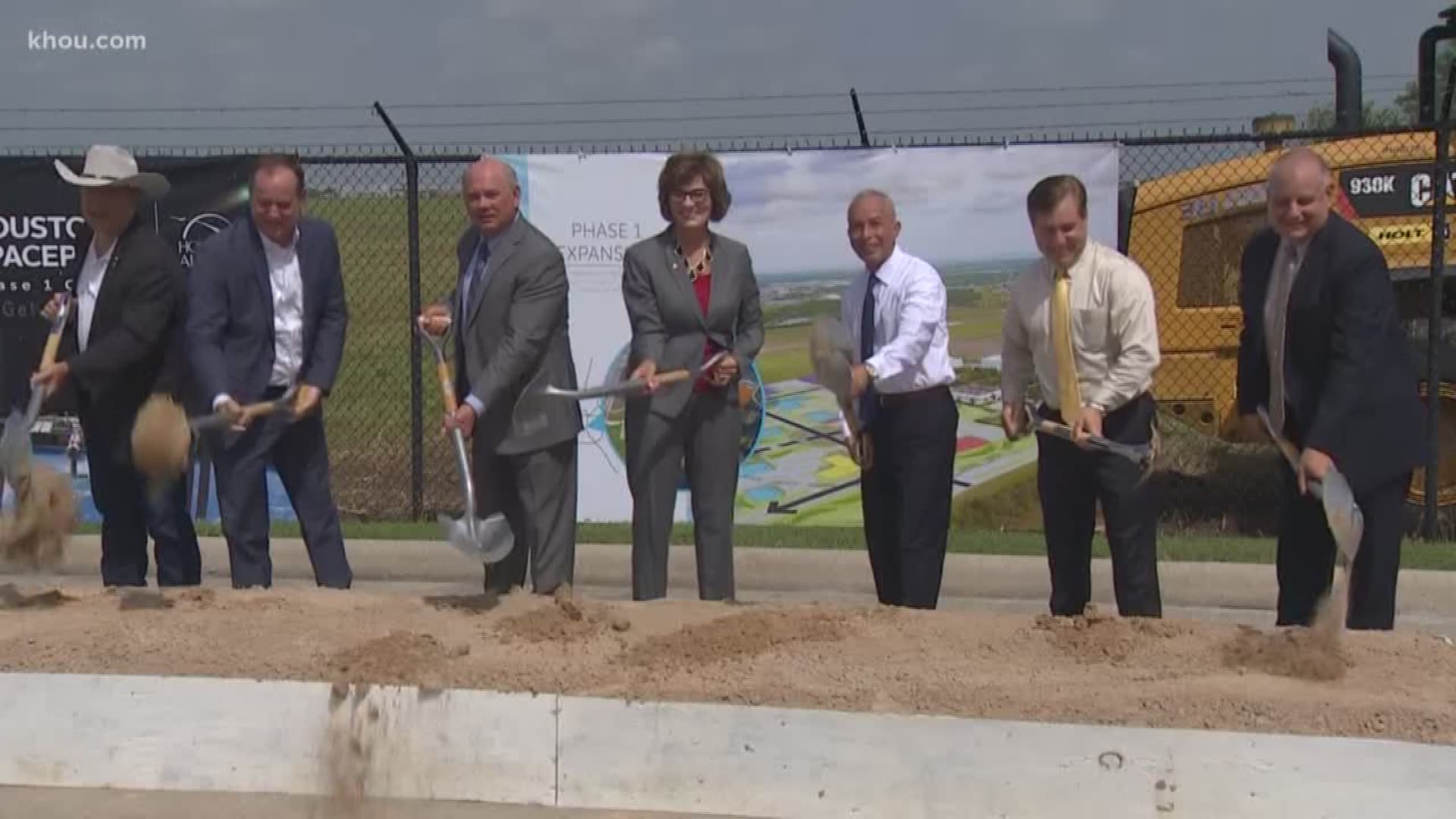HOUSTON — Houston will launch and land suborbital vehicles from its spaceport that’s officially under construction.
The Houston Spaceport at Ellington Airport has been a concept for 4 years. Friday, city officials and project partners took their official first step toward concrete reality with a ground-breaking ceremony Friday at Ellington Field.
Phase 1 of the project required an $18.8 million investment to provide the ground level infrastructure to attract commercial space travel and aviation companies to Houston.
“When complete, Phase 1 will provide the ground work to support the companies that produce the cutting-edge innovations needed to take commercial space travel and aviation into the sub-sonic, super-sonic and hyper-sonic realm,” Houston Aviation Director Mario Diaz said.
Steve Altemus’ Houston-based, Intuitive Machines, is the first private company to sign on as a spaceport tenant. In May, Intuitive Machines received a $77.2 million contract from NASA to create, launch and land its NOVA-C spacecraft to the surface of the moon.
“By having a hub where all these technologies come together we can share our intellectual capital back and forth to create amazing advancements in space and aviation,” said Altemus.
Spaceport administrators expect companies like Intuitive Machines to add more than 10,000 jobs in Houston. To help train that workforce, San Jacinto College Chancellor, Dr. Brenda Hellyer, says their Edge Center will serve as the spaceport’s workforce training center, providing a talent pipeline for new businesses.
“When you’re bringing in and trying to recruit new companies to the area they need to know you have partners like that at the table to meet their needs,” said Hellyer.
When all 450 acres at Ellington Airport are fully developed, the Houston Spaceport will foster and accelerate key aerospace engineering activities including:
- Component and composite development and fabrication
- Space vehicle assembly
- Zero-gravity scientific and medical experiments
- Microsatellite deployment
- Astronaut training and development
- Space tourism
ALSO POPULAR ON KHOU.COM:

